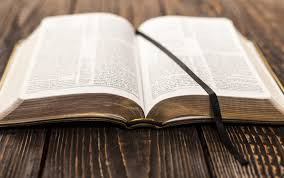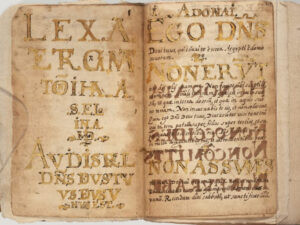
The Christmas festive season is upon us. It brings with it some merry-making moods in celebration for the birth of Jesus Christ.
Both the rich and the poor have expectations of enjoyment during this period.
Those without the means may continue to languish in their poverty status if no one comes to lift up their spirits with some invitations to Christmas feasts.
Every society and family has poor people within it. Very often, those who can afford to host feasts in celebration tend to invite those with the means, in expectation of a return of the favours, leaving out the poor to fend for themselves.
In Luke 14:12-15, Jesus Christ spoke to a man who had invited him to a feast and said, “When you give a dinner or a banquet, do not invite your friends or your brothers or your kinsmen or rich neighbours, lest they also invite you in return, and you be repaid. But when you give a feast, invite the poor, the maimed, the lame, the blind and you will be blessed, because they cannot repay you. You will be repaid at the resurrection of the just”.
I came across a story that reads: A man slaughtered a big cow, lit the grill and said to his daughter, “Daughter, call our loved ones and neighbours to eat with us. Let us enjoy the food together and be merry!”
His daughter went to the street and started shouting, “Please help us put out a fire at my dad’s house!”
After a few moments, a small group of people came out and the rest of the people acted like they didn’t hear the cries for help.
- Sunday word: Identifying ‘mother of earth’s abominations’
- Sunday word: Seven plagues of Judgement Day
- Sunday word: Distinguish true friends from pretenders
- Sunday word: Man cannot change God’s decision
Keep Reading
Those who came were cordially invited by the daughter. She told them to sit down and enjoy the food that her father had prepared. The people enjoyed the food and fellowship there.
The stunned father turned to his daughter and said to her, “I don’t know any of the people who came. I have never seen them before. Where are our loved ones, our family and our colleagues?”
The daughter said, “These people came out of their homes to help us put out a fire in our house, not for the party. These are the ones who deserve our generosity and hospitality.”
The simple conclusion to this story is that those who won’t help you during your struggle, shouldn’t eat with you at your celebration party.
In Luke 14:16-24, Christ proceeded to tell of another story: “A man once gave a great banquet, and invited many; and at the time for the banquet he sent his servant to say to those who had been invited, ‘Come; for all is now ready!’ But they all alike began to make excuses. The first said to him, ‘I have bought a field, and I must go out and see it; I pray you, have me excused.’ And another said, ‘I have bought five yokes of oxen, and I want to go to examine them; I pray you, have me excused.’ Another said, ‘I have married a wife, and therefore I cannot come’. So the servant came back and reported this to his master. Then the householder in anger said to his servant, ‘Go out quickly to the streets and lanes of the city, and bring in the poor and maimed and blind and lame’. And the servant said, ‘Sir, what you commanded has been done, and still there is room’. And the master said to the servant, ‘Go out to the highways and the hedges, and compel people to come in, that my house may be filled. For I tell you, none of those men who were invited shall eat my banquet”.
The above story as told by Jesus Christ illustrates that there is a human tendency to invite people who are well-off to our parties or feasts.
However, because these people already enjoy a luxurious lifestyle of days and nights, in and out eating rich foods and expensive drinks, they no longer give much value to the invitations to banquets. The foods and drinks on offer are what they are already used to on a daily basis. The poor will humbly hurriedly come to feasts in enjoyment as this is not a regular occurrence in their lives.
Let us also on time pay the maids or other hired hands who assist us in our households, for they also have their own families to feed. The Lord our God spoke (Deuteronomy 24:14-15) “You shall not oppress a hired servant who is poor and needy, whether he is one of your brethren or one of the sojourners who are in your land within your town; for you shall give him his hired on the day he earns it before the sun goes down; lest he cry out against you to the Lord and it be sin in you”.
Borrowing is a common feature among the poor, and as such God yearns for their protection.
In Exodus 22:25-27, He spoke: “If you lend money to any of my people with you who is poor, you shall not be to him as a creditor, and you shall not exact interest from him. If ever you take your neighbour’s garment in pledge (surerity), you shall restore it before the sun goes down; for that is his only covering, it is the mantle for his body; in what else shall he sleep? And if he cries to me, I will hear, for I am compassionate.
There is yet another provision for the poor through a largely ignored directive from the Lord, termed as “the Sabbath of the land”. In Exodus 23:10-11, He decreed; For six years you shall sow your land and gather in its yield; but in the seventh year you shall let it rest and lie fallow, that the poor of your people may eat; and what they leave the wild beasts may eat. You shall do likewise with your vineyard and with your olive orchard.”
There are many other verses in our scriptures that encourage us to always take at heart the needs of the poor, in the many different spheres of our lives.
Prosper Tingini is the Scribe of the Children of God Missionary Assembly — God’s messengers. Contact details: Mobile & whatsapp – 0771 260 195. Email address: [email protected]










